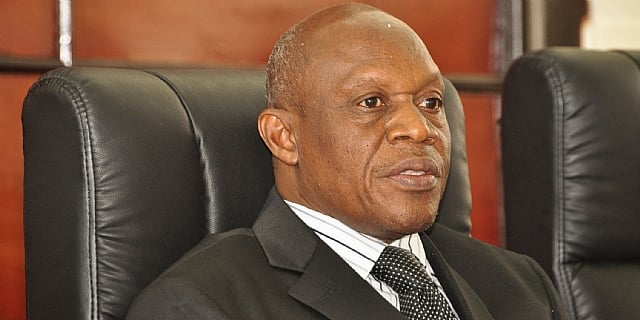Retired Supreme Court Justice William Atuguba’s recent appearance on The Assembly podcast, hosted by Dr. Ayure-Inga Mark Agana, ignited a crucial conversation about the urgent need for systematic reforms within Ghana’s judiciary. Justice Atuguba’s central argument revolved around the declining public trust in the court system, a decline fueled by perceptions of bias, inefficiency, and a perceived proclivity towards favoring the ruling government and its affiliates. He pointed to various indicators of this erosion of trust, including surveys conducted by organizations like Afrobarometer and the pervasive critical commentary circulating on social media platforms. The derisive nickname “Unanimous FC,” frequently attached to the court, encapsulates the public’s skepticism towards the predictability of its decisions, particularly in politically charged cases. This perception of predetermined outcomes, invariably aligning with the government’s position, undermines the very foundation of judicial independence and impartiality, eroding the public’s faith in the institution’s ability to deliver unbiased justice.
Justice Atuguba’s call for reform stems from the widespread public outcry against the perceived politicization of the judiciary. He emphasized the gravity of the situation, stating unequivocally that the existing trust deficit demands decisive action from any incoming government that acknowledges the legitimacy of these concerns. He stressed that the restoration of public confidence necessitates a thorough and systematic approach, emphasizing the importance of evidence-based reforms rather than politically motivated actions. The removal of judges, he cautioned, should not be driven by political expediency but rather by concrete evidence of misconduct and a demonstrated lack of impartiality. He specifically warned against the practice of judges acting as “political poodles,” prioritizing political allegiance over their constitutional duty to uphold justice fairly and impartially. Any actions taken to address the current crisis of confidence, he asserted, must be grounded in principles of fairness, due process, and a demonstrable commitment to restoring the integrity of the judicial system.
Central to Justice Atuguba’s proposed reforms is the careful selection and appointment of judges. He argued that the judiciary’s credibility hinges on the competence, integrity, and independence of the individuals entrusted with judicial power. He underscored the critical importance of appointing judges who possess not only the requisite legal qualifications but also an unwavering commitment to upholding the principles of justice without fear or favor. He argued that such appointments are the cornerstone of a credible and trustworthy judicial system. Furthermore, he suggested that achieving this goal doesn’t necessarily require constitutional amendments, but rather a rigorous and transparent selection process that prioritizes merit, impartiality, and a demonstrated commitment to upholding the rule of law. This, he argued, would be a significant step towards rebuilding public trust.
Justice Atuguba’s commentary on the state of Ghana’s judiciary comes at a critical juncture, particularly in the aftermath of several contentious rulings in politically sensitive cases. These rulings have further fueled public debate and scrutiny, intensifying concerns about the judiciary’s impartiality and its susceptibility to political influence. His intervention in this ongoing discourse provides a valuable roadmap for navigating the complex challenges facing the judicial system and offers concrete recommendations for restoring its credibility. His call for a systematic overhaul, grounded in evidence and focused on ensuring the independence and integrity of judges, presents a compelling framework for addressing the current crisis and rebuilding public trust.
The resonance of Justice Atuguba’s remarks within Ghanaian society underscores the widespread yearning for a more accountable and transparent judicial system. His insights have provided a much-needed focal point for discussions on judicial reform, encapsulating the public’s desire for a judiciary that is demonstrably independent, impartial, and committed to upholding the rule of law. His emphasis on evidence-based reforms, coupled with his call for the appointment of competent and independent judges, offers a pathway towards achieving this goal. The ongoing debate surrounding judicial integrity in Ghana reflects a growing demand for accountability within the legal system, and Justice Atuguba’s contribution to this conversation provides valuable guidance for navigating the path towards meaningful reform.
In essence, Justice Atuguba’s intervention is a call for a fundamental shift in the way the Ghanaian judiciary operates. He advocates for moving beyond superficial changes and embracing a deeper, more systemic approach to reform that addresses the root causes of the current crisis of confidence. His emphasis on evidence-based decision-making, transparency in judicial appointments, and the paramount importance of judicial independence offers a comprehensive framework for rebuilding trust and ensuring that the judiciary fulfills its constitutional mandate. His remarks serve as a timely reminder of the critical role the judiciary plays in upholding democratic principles and underscore the urgent need for reforms that prioritize integrity, impartiality, and the unwavering pursuit of justice. The ongoing public discourse, fueled by his insights, holds the potential to catalyze meaningful change and contribute to a more just and equitable legal system in Ghana.


